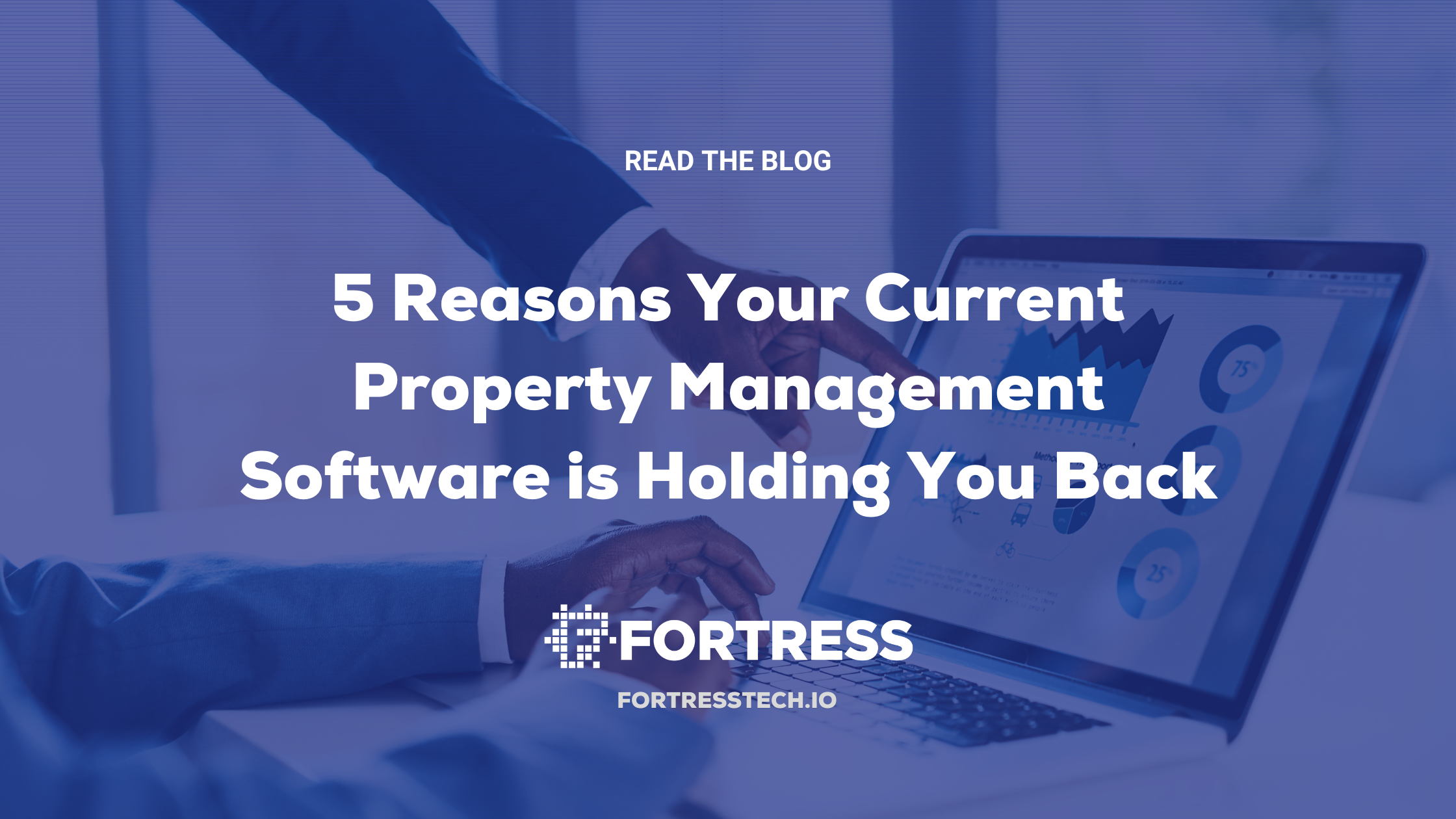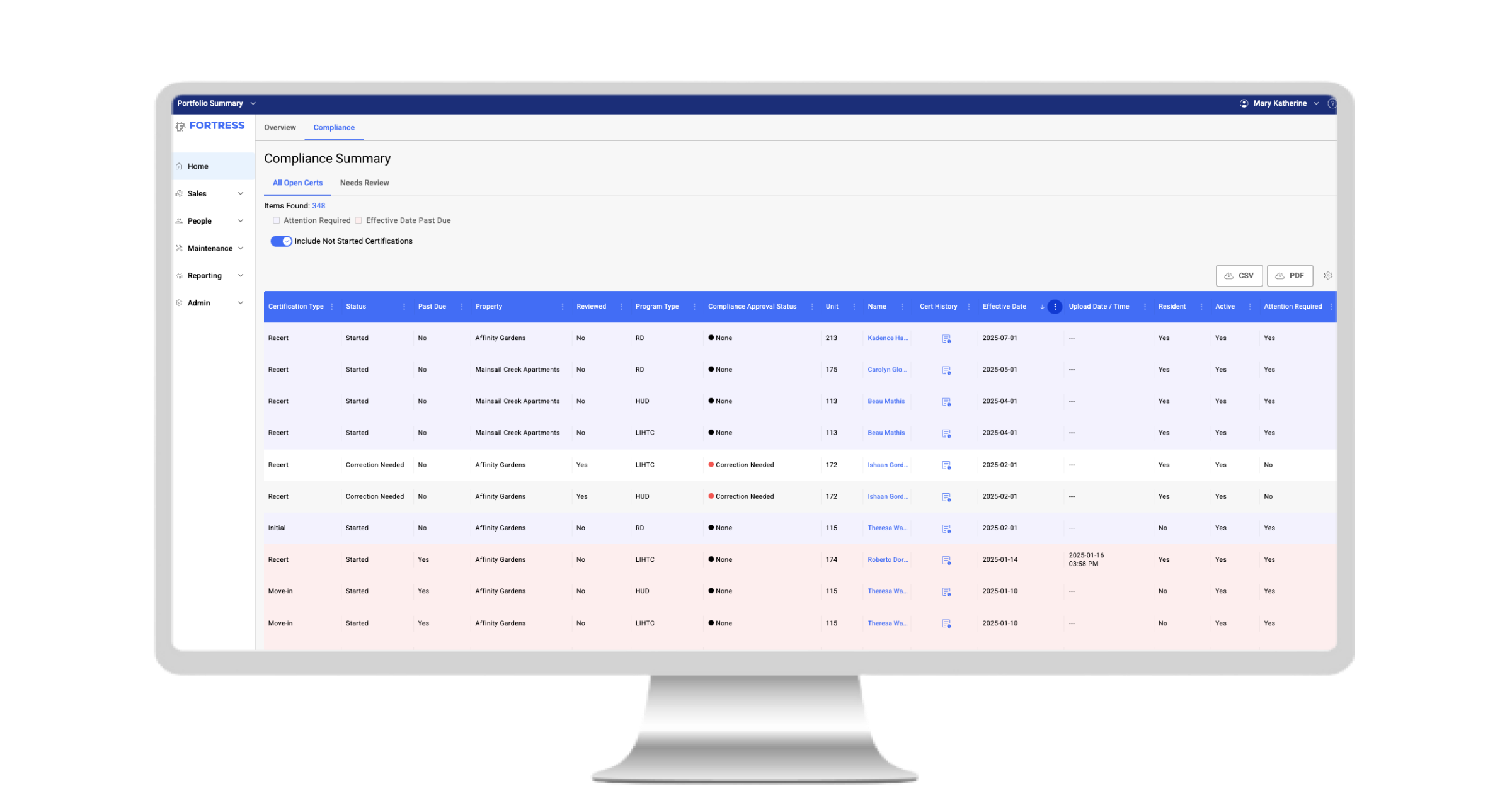Look around and find your phone. It’s most likely not very far away. Maybe it’s sitting to your right on the desk? In your pocket? Or perhaps it’s in your hand being used to read this article.
The point is that our phones are a piece of technology we can’t seem to live without. We keep it constantly updated and protected from security threats. We applaud its sleek design and accessories. We admire its intuitiveness and its motivation for simplifying our time. Using it makes sense.
But what if we look at current property management software through this same lens - would we be rejoicing at how sleek, modern, intuitive, and functional it is? Or would it appear lagging and underwhelming?
Is it capable of being our technological right-hand man?
The most essential tool and resource in the property management industry, the one that connects all the business pieces and basic operations, must be manageable and relevant. So why settle for archaic legacy software systems?
Below we will explore five reasons your current property management software may be holding you back and the importance of software that creates solutions and efficiencies, not hindrances.
1. Limited Features
One of the primary issues with older property management software is its limited features. These legacy systems lack the capabilities to support modern business needs and practices. For example, they may not offer full mobile accessibility, cloud-based options, client transparency, or customization features. These limitations can impede the efficiency and effectiveness of your property management operations, preventing you from staying competitive in the market.
2. Poor Integration
Outdated software is built on outdated technologies and needs help integrating newer systems and tools. The result can lead to inefficient workflows and potentially costly mistakes, as data often needs to be manually transferred between various platforms. Seamless integration with other systems enhances productivity, reduces manual errors, and enables smooth collaboration with partners and stakeholders.
3. Inability to Scale
As your property management business grows, evaluating whether your software can grow with it is essential. Outdated software may lack the flexibility and scalability to accommodate increasing demands and expanding portfolios. Investing in modern software solutions that can adapt and grow with your business ensures long-term success and avoids the need for extensive upgrades or complete software replacements.
4. Usability Issues
Complex and unintuitive interfaces can lead to usability issues, resulting in employee turnover and high overhead costs. If your software lacks in-system training and support, employees may struggle to utilize its full potential, decreasing efficiency and productivity. Investing in user-friendly software accompanied by comprehensive training resources can alleviate these issues, reduce training costs, and empower your team to perform at their best.
5. Cost Prohibitive
Outdated software often comes with numerous hidden costs and fees, making it financially burdensome. Onboarding fees, software-as-a-service (SaaS) fees, ancillary fees, and support fees can quickly add up, putting a strain on your budget. Additionally, onboarding employees onto legacy software through labor-intensive training can take 2-4 weeks, resulting in lost revenue and increased costs. Implementing cost-effective software that offers transparent and accessible information and facilitates effective internal training is crucial for optimizing your budget and maximizing ROI.
We know you wouldn’t expect a slow, decaying cellphone to handle modern capabilities, so why not expect (and deserve) more from your property management software?
The right software should be a catalyst for growth - a software that empowers your team, enhances efficiency, and drives industry success through insight and support. It should opt for modern, cost-effective solutions that cater to operations while prioritizing integration.
Platforms like Fortress revolutionizes property management, driving exponential growth and unparalleled operational efficiency. These tools transform the industry by automating tasks, optimizing workflows, and empowering property managers to prioritize community satisfaction. Ensure to adopt a platform that has a painless setup and interface, preferably something with an intuitive interface or interactive support documentation, since you’d want to decrease the disruption on onboarding and training your team on how to use their new tools. Say goodbye to settling for underwhelming software and embrace the simplified superiority era of property management— the future is now.
Are you ready to stop settling?


.jpg)
.png)


